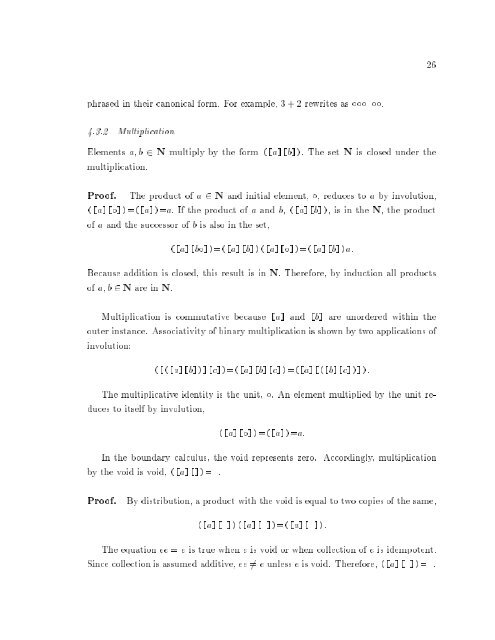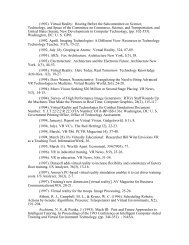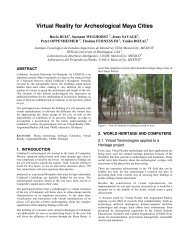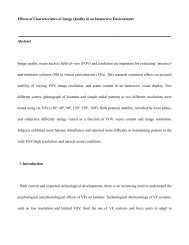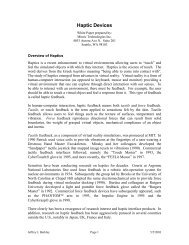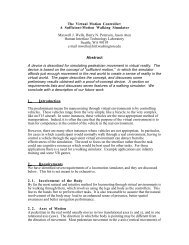A Calculus of Number Based on Spatial Forms - University of ...
A Calculus of Number Based on Spatial Forms - University of ...
A Calculus of Number Based on Spatial Forms - University of ...
You also want an ePaper? Increase the reach of your titles
YUMPU automatically turns print PDFs into web optimized ePapers that Google loves.
26<br />
phrased in their can<strong>on</strong>ical form. For example, 3 + 2 rewrites as :<br />
4.3.2 Multiplicati<strong>on</strong><br />
Elements a; b 2 N multiply by the form ([a][b]): The set N is closed under the<br />
multiplicati<strong>on</strong>.<br />
Pro<str<strong>on</strong>g>of</str<strong>on</strong>g>.<br />
The product <str<strong>on</strong>g>of</str<strong>on</strong>g> a 2 N and initial element, , reduces to a by involuti<strong>on</strong>,<br />
([a][])=([a])=a: If the product <str<strong>on</strong>g>of</str<strong>on</strong>g> a and b, ([a][b]), isintheN, the product<br />
<str<strong>on</strong>g>of</str<strong>on</strong>g> a and the successor <str<strong>on</strong>g>of</str<strong>on</strong>g> b is also in the set,<br />
([a][b])=([a][b])([a][])=([a][b])a:<br />
Because additi<strong>on</strong> is closed, this result is in N. Therefore, by inducti<strong>on</strong> all products<br />
<str<strong>on</strong>g>of</str<strong>on</strong>g> a; b 2 N are in N.<br />
Multiplicati<strong>on</strong> is commutative because [a] and [b] are unordered within the<br />
outer instance. Associativity <str<strong>on</strong>g>of</str<strong>on</strong>g> binary multiplicati<strong>on</strong> is shown by two applicati<strong>on</strong>s <str<strong>on</strong>g>of</str<strong>on</strong>g><br />
involuti<strong>on</strong>:<br />
([([a][b])][c])=([a][b][c])=([a][([b][c])]):<br />
The multiplicative identity is the unit, : An element multiplied by the unit reduces<br />
to itself by involuti<strong>on</strong>,<br />
([a][])=([a])=a:<br />
In the boundary calculus, the void represents zero. Accordingly, multiplicati<strong>on</strong><br />
by the void is void, ([a][])= :<br />
Pro<str<strong>on</strong>g>of</str<strong>on</strong>g>.<br />
By distributi<strong>on</strong>, a product with the void is equal to two copies <str<strong>on</strong>g>of</str<strong>on</strong>g> the same,<br />
([a][ ])([a][ ])=([a][ ]):<br />
The equati<strong>on</strong> ee = e is true when e is void or when collecti<strong>on</strong> <str<strong>on</strong>g>of</str<strong>on</strong>g> e is idempotent.<br />
Since collecti<strong>on</strong> is assumed additive, ee 6= e unless e is void. Therefore, ([a][ ])= :


